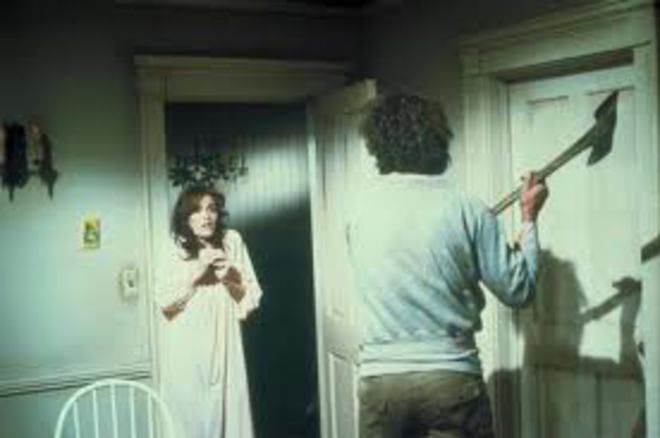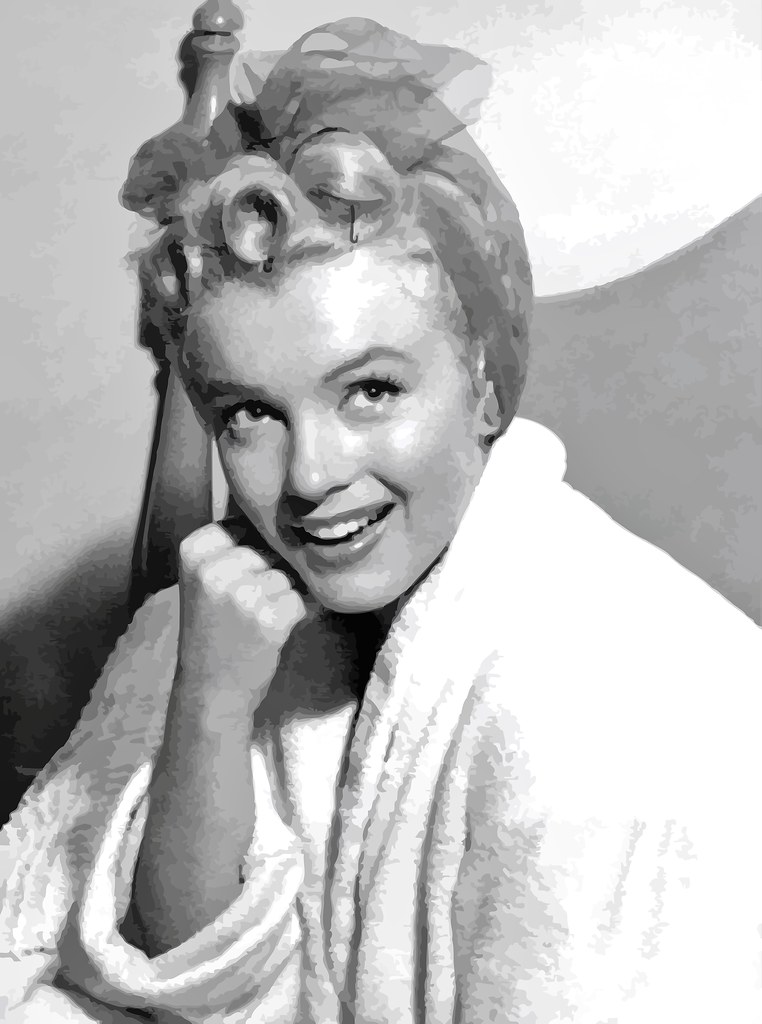
The “Twilight” saga was more than just a pop culture phenomenon; it was a seismic event that reshaped the careers of its young stars. For a fleeting yet intense period between 2008 and 2012, the world was gripped by a singular, defining question: “Are you Team Edward or Team Jacob?” This binary choice catapulted Kristen Stewart, Robert Pattinson, and particularly Taylor Lautner—the charismatic werewolf with a physique that launched a thousand fan theories—into an unprecedented stratosphere of global celebrity. The franchise’s colossal success minted millions of devoted fans and seemed to lay a golden path for Lautner, a path many in Hollywood believed would lead to untold riches for both the actor and the studios eager to capitalize on his newfound stardom.
Yet, as the final credits rolled on “Breaking Dawn – Part 2” and the clamor of the “Twilight” era began to subside, a curious quietude descended upon Taylor Lautner’s once-blazing career. While his co-stars navigated their post-franchise landscapes with varying degrees of success, carefully curating new roles and shedding their supernatural skins, Lautner’s trajectory seemed to plateau, then gently recede from the blockbuster spotlight. The initial assumption that he would effortlessly transition into a leading man, a formidable action hero, or a versatile dramatic actor, proved to be a narrative left largely unwritten.
This comprehensive investigation delves into the multifaceted reasons behind Hollywood’s apparent reluctance to cast Taylor Lautner in the years following his “Twilight” glory. From the indelible shadow of typecasting to a series of critical and commercial misfires, and from the complex interplay of industry expectations to the intricate machinations of financial realities, we peel back the layers to understand why, for an actor once poised on the precipice of enduring stardom, the silver screen began to dim.
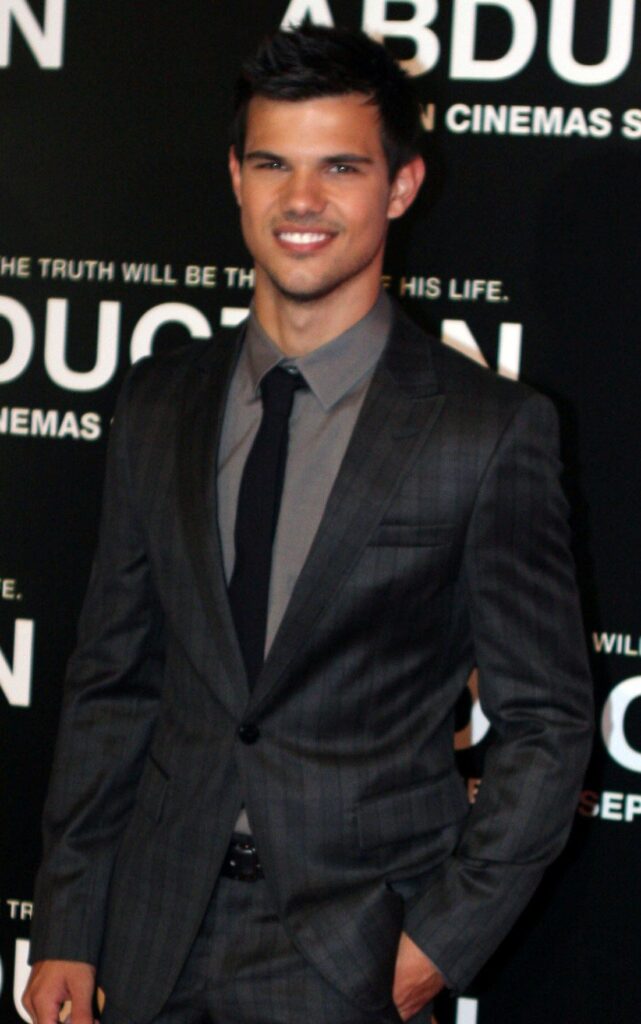
1. **The Indelible Mark of Twilight: Typecasting’s Grip** The most immediate and perhaps inescapable hurdle for Taylor Lautner, post-“Twilight,” was the pervasive shadow of Jacob Black. While his co-stars, Kristen Stewart and Robert Pattinson, embarked on strategic career pivots to distance themselves from their iconic roles—Stewart delving into indie cinema, and Pattinson exploring arthouse projects—Lautner found himself inextricably linked to the chiseled, loyal werewolf. This attachment was so profound that even his 27th birthday party in 2019, attended by Stewart, sparked a “Twilight” reunion “freakout mode,” illustrating the public’s enduring association.
Movie executives remained acutely aware of this persistent connection. Their hesitation to cast Lautner in diverse roles stemmed from a legitimate concern: had he done enough to shed the character of Jacob, or would audiences perpetually expect him to transform into a supernatural being? The narrative suggests a missed opportunity during the franchise’s peak to actively branch out. Lautner’s efforts in this crucial period were notably sparse, limited to a bit part in “Valentine’s Day” and the ill-fated “Abduction” between “Twilight” installments.
This lack of early diversification solidified the public perception of Lautner as “just Jacob.” A Hollywood agent observed in 2015, that “it’s not easy to move out of the shadow of a hit like ‘Twilight’.” Unfortunately, for Lautner, the window for this transition appeared to narrow rather than widen, making it increasingly difficult for him to break free from the powerful gravitational pull of the supernatural drama.
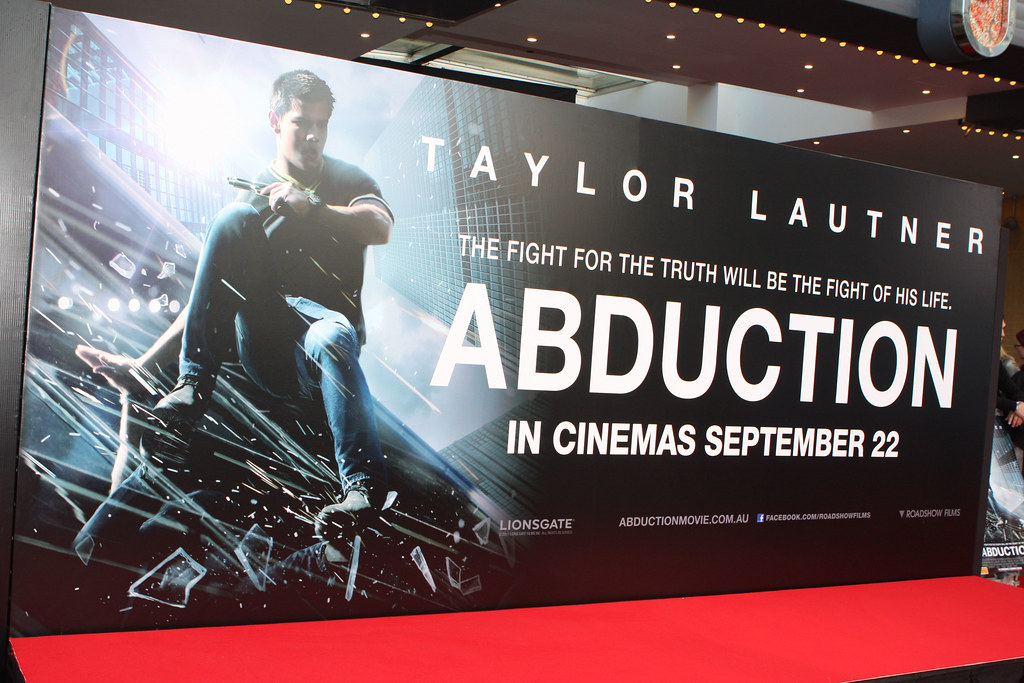
2. **Early Career Missteps: The Perilous Path of “Abduction”** Taylor Lautner’s first major test as a leading man arrived with the 2011 romantic action thriller “Abduction.” Touted as his opportunity to transcend the “Twilight” label and carve out a niche as Hollywood’s next action hero, the film boasted significant pedigree. Legendary director John Singleton was at the helm, and a formidable supporting cast included esteemed talents such as Sigourney Weaver, Alfred Molina, and Jason Isaacs. The stage was meticulously set for Lautner to assert his individual star power, separate from the phenomenon that had made him famous.
However, “Abduction” proved to be a profound disappointment. The film bombed at the box office, generating only $28 million domestically against its $35 million budget, signaling a clear lack of public interest in a Lautner project sans supernatural elements. Critics were even less forgiving; the movie was universally panned, achieving a dismal 5% on Rotten Tomatoes and a 25 Metascore. This critical drubbing underscored a significant challenge: audiences were seemingly unwilling to invest in Lautner outside the context of his “Twilight” persona.
Adding insult to injury, even the few critics who didn’t lay sole blame at Lautner’s feet offered backhanded compliments. Tim Robey of The Telegraph famously quipped, “When Taylor Lautner is the least of a movie’s problems, be afraid.” This initial foray into post-“Twilight” leading roles sent a stark message to studios: Lautner’s box office appeal was not easily transferable, and his ability to carry a film independently remained unproven and, indeed, highly questionable.

3. **The Faltering Follow-Up: “Tracers” and Its Unseen Release** Despite the critical and commercial failure of “Abduction,” studios, ever hopeful, decided to give Taylor Lautner another chance as a leading man. In 2015, just three years removed from the conclusion of the “Twilight” franchise, it was still believed that his residual stardom might translate into an audience draw. The vehicle for this second attempt was “Tracers,” a romantic action thriller in which Lautner played a bike messenger who stumbles upon parkour and love, all while being pursued by the Chinese mafia. The premise held the promise of high-octane action.
Yet, “Tracers” suffered an even more ignominious fate than its predecessor. In a stark reflection of declining confidence, the film received only a single-day U.S. theatrical release on May 10, 2015, grossing a mere $2,000. Its international box office performance was equally bleak, pulling in a paltry $3.3 million worldwide. This effectively signaled the end of Lautner’s aspirations as a studio-backed leading man, as the numbers unequivocally demonstrated his inability to command an audience, even with a seemingly exciting premise designed to showcase his physicality.
Critics, once again, offered little solace. “Tracers” managed a combined 24% on Rotten Tomatoes, further cementing Lautner’s reputation for starring in poorly received films. Steve Tilley of the Toronto Sun presciently opened his review with a stark warning: “At the end of ‘Twilight,’ poor shirtless werewolf Jacob didn’t manage to get the girl. And if he’s not careful, Taylor Lautner isn’t going to get a career, either.” This critical consensus, combined with the catastrophic box office performance, effectively sealed the fate of Lautner’s attempts to establish himself as a viable, bankable star in mainstream Hollywood cinema.
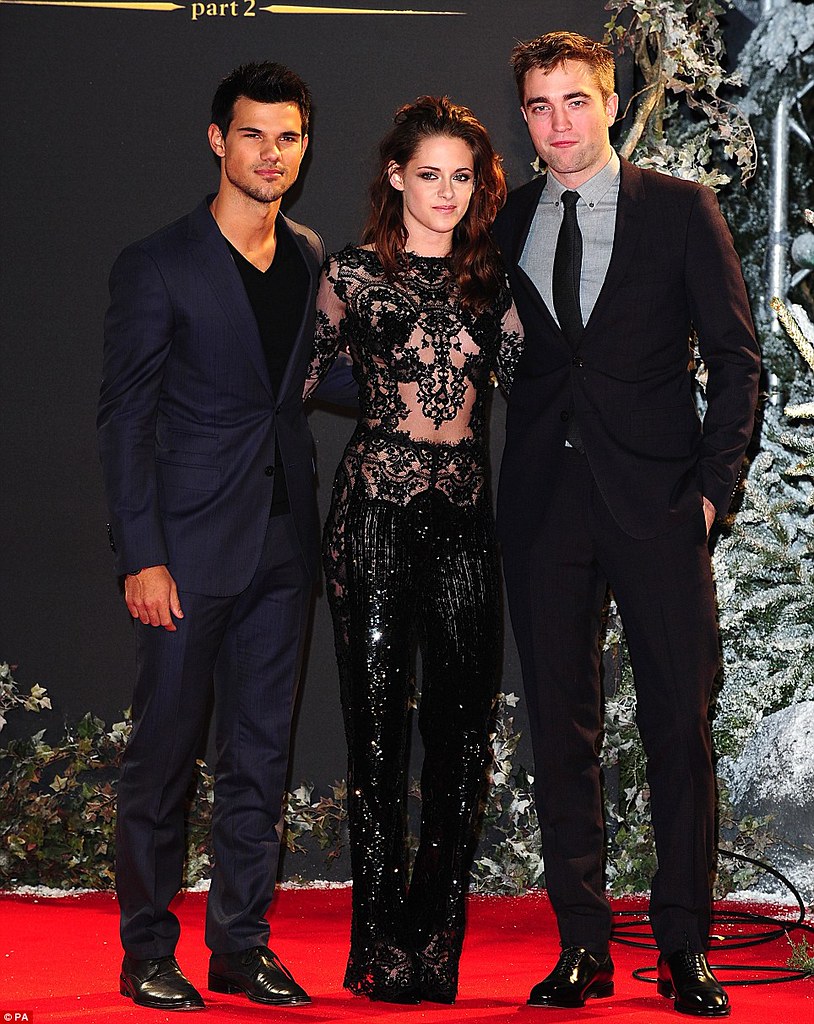
4. **The Cost of Stardom: High Salary Expectations Post-Franchise** Emerging from one of the most commercially successful film franchises in cinematic history, it was perhaps understandable that Taylor Lautner and his representation would aim high when negotiating his post-“Twilight” salaries. An anonymous studio production executive lauded Lautner’s talent agency for doing “a brilliant job of convincing Hollywood that he’s the next big movie star,” a conviction clearly reflected in the substantial figures being floated. Lautner commanded $5 million for “Abduction,” and was slated to receive an even more impressive $7.5 million for a live-action feature about Stretch Armstrong.
However, these hefty paychecks quickly became a point of contention and skepticism within the industry. A source recalled Universal co-chairman Donna Langley’s enthusiasm for casting Lautner in “Stretch Armstrong,” stating, “‘He’s the real deal!’ And I thought, Based on what?! Based on ‘Twilight?'” This anecdote highlights a growing disconnect between the perceived value of a “Twilight” star and the actual, demonstrable talent or box office drawing power for non-franchise projects. The industry began to question whether Lautner’s high price tag was justified.
The concerns were not unfounded. A former studio marketing executive drew a sobering comparison, remarking that “Abduction” was akin to “selling Tobey Maguire in anything outside of ‘Spider-Man’,” predicting the eventual collapse of “Stretch Armstrong.” Indeed, Lautner eventually dropped out, with “scheduling conflicts” cited as the official reason—a convenient excuse likely for both parties to save face on a project “dead in the water.” The reality was that Lautner wasn’t being offered $7.5 million anywhere else, suggesting his market value was quickly recalibrating downwards, making him an increasingly expensive risk.
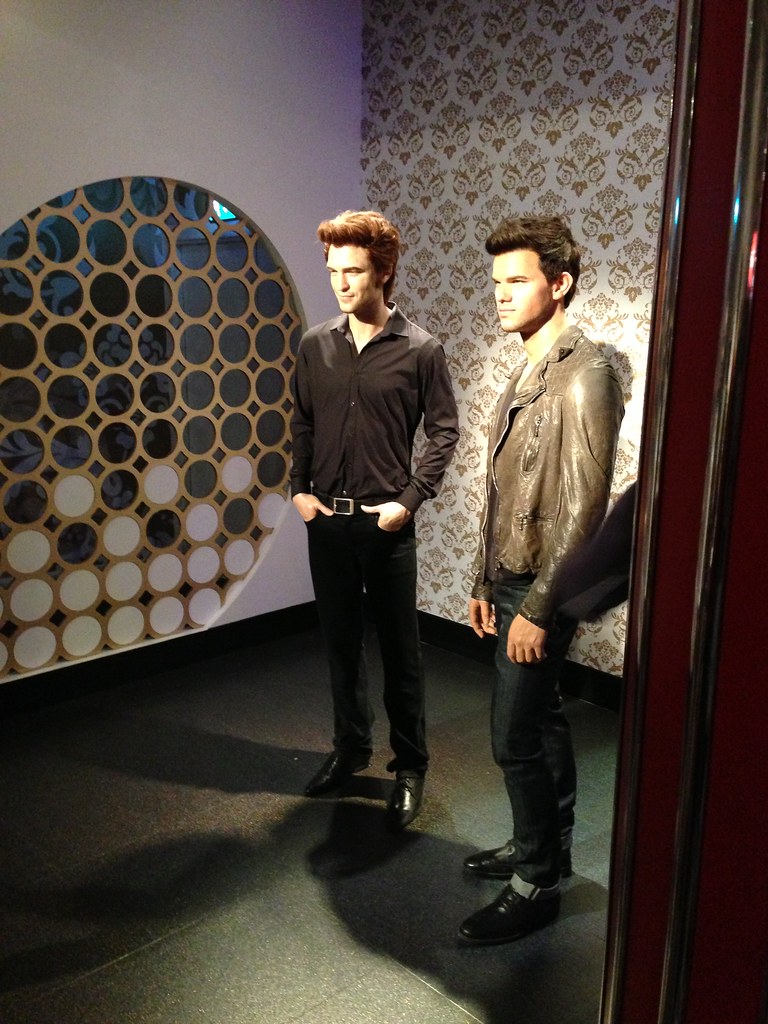
5. **Critique of Craft: The Unsparing Verdict on Lautner’s Acting** Beyond the financial considerations and the shadow of typecasting, a recurring theme in the discourse surrounding Taylor Lautner’s career was the often-unflattering assessment of his acting ability. While figures like Jason Statham or Dwayne “The Rock” Johnson may not be perennial Oscar contenders, their films often succeed due to their undeniable screen presence and charisma. Critics, however, frequently noted that Lautner seemed to possess neither the innate magnetism nor the refined acting chops to elevate his performances.
The reviews for “Abduction” were particularly brutal regarding his dramatic range. Movieline’s Alison Wilmore didn’t mince words, writing, “This may be the first film I’ve ever seen where when an actor goes to put his hand thoughtfully on his chin, it’s so awkward I became afraid he’d somehow miss and poke himself in the eye.” Such a specific, almost painfully physical critique speaks volumes about a perceived lack of naturalism and comfort on screen. The Village Voice echoed this, stating he looked “like a stranger in his own performance.”
His second leading role in “Tracers” did little to assuage these critical concerns. Brian Orndorf of Blu-ray.com observed, “As for Lautner, he’s still not much of an actor, but at least ‘Tracers’ isn’t asking him to pull off any major dramatic movements. He’s here to move at top speed, leap over walls, and make pained faces when the going gets tough for Cam. Anything more than that is beyond his skill level.” This consistent narrative—that Lautner’s skills were better suited for physical demands rather than nuanced emotional expression—undoubtedly factored into Hollywood’s diminishing interest. A producer candidly summarized, “His first movie just wasn’t very good, and it didn’t justify what he was asking for at the time.”
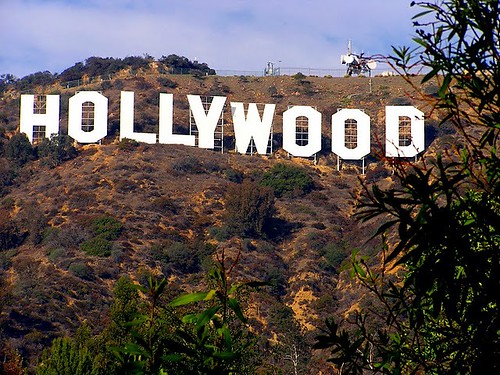
6. **Behind-the-Scenes Complications: Allegations Surrounding His Father** Hollywood is a town built on relationships, and while talent is paramount, an actor’s professional conduct, and even that of their inner circle, can significantly influence career longevity. In 2011, allegations surfaced regarding Taylor Lautner’s father, Daniel Lautner, suggesting a potential source of behind-the-scenes friction. The Hollywood Reporter claimed Taylor was allegedly let go by his high-profile publicist, Robin Baum, after a mere three months, reportedly due to his father’s “antics.” The outlet explicitly stated, “Word is, his father, Daniel Lautner, isn’t the easiest guy to work with.”
While these claims date back to Lautner’s early post-“Twilight” career, the industry has a long memory when it comes to individuals perceived as “difficult.” The context acknowledges that while Daniel may have reformed, such reputations can dog a talent for years, drawing parallels to the career impact experienced by figures like Katherine Heigl. The presence of an allegedly challenging parent figure in a young star’s entourage can create a ripple effect, making agents, publicists, and ultimately, studios, wary of potential complications.
It’s impossible to definitively state that these allegations “torpedoed” Lautner’s career. However, the mere possibility that such whispers could circulate about the professionalism of his support system adds another layer to the complex tapestry of reasons for Hollywood’s shifting stance. In a cutthroat industry where countless actors vie for limited roles, even subtle concerns about a star’s ease of collaboration—or the ease of collaborating with their team—can tip the scales against them.

7. **A Misguided Instinct: The Controversial “Ridiculous 6″** In what appeared to be an attempt to pivot towards comedy and align himself with a proven box office draw, Taylor Lautner joined the cast of Adam Sandler’s Netflix original, “The Ridiculous 6.” Lautner himself expressed trepidation about the role, telling Ryan Seacrest, “I read the script and it absolutely terrified me and the role terrified me.” Despite his instincts warning him, he rationalized, “My role is pretty out there—he’s a total country bumpkin—so I said to myself, if I just go for this and don’t hold back, what could go wrong?” Tragically, a great deal went wrong.
“The Ridiculous 6” proved to be a critical disaster of epic proportions, achieving a notorious 0% rating on Rotten Tomatoes. This alone would be a significant blow to any actor’s filmography, particularly one already struggling to regain footing. However, the film’s negative impact extended far beyond critical reception. It sparked a major controversy due to its offensive content, particularly racially charged jokes and inaccuracies targeting indigenous cultures, leading several Native American actors to walk off the set in protest.
While Netflix attempted to defend the film as “a broad satire of Western movies,” the damage was done. For Lautner, participating in such a widely condemned project, especially one that drew accusations of racism and disrespect, represented a severe misjudgment. It not only added another critical bomb to his growing list but also associated his name with a controversy that extended beyond artistic merit, making it an even greater challenge for Hollywood to see him as a reliable or desirable asset for future projects. He had, perhaps, failed to trust his gut instinct for a valid reason.

8. **Family Commitments: A Sister’s Health Journey**Beyond the glitz and demanding schedules of Hollywood, a profound personal commitment emerged that undoubtedly shaped Taylor Lautner’s priorities. In an August 2018 Instagram post, a touching image revealed Lautner leaning over to kiss his sister, Makena Lautner, as she lay in a hospital bed. The accompanying caption, “2nd heart procedure is finally a MASSIVE success,” conveyed a raw vulnerability and deep fraternal love, underscoring the gravity of his sister’s health struggles. This personal glimpse into his family life offered a compelling explanation for any perceived withdrawal from the relentless pursuit of acting roles.
The profound bond between Taylor and Makena is evident through his frequent social media tributes. A July 2018 shoutout for her 20th birthday, where he lauded her as a “cool cucumber who inspires me every single day” and expressed a wish to “grow up as cool as you,” speaks volumes about the admiration and affection he holds for her. Such heartfelt public displays suggest a deep-seated commitment to his family, a commitment that can often eclipse the demands of a high-pressure career. While the exact details of Makena’s health challenges remain private, the necessity of heart surgery signals a period of significant personal focus and support.
It is entirely conceivable that Lautner, as a devoted brother, prioritized being present for his sister during such a critical time. In an industry where absence can quickly lead to being forgotten, the choice to step back for family is both commendable and, from a career perspective, impactful. This shift in focus, from chasing blockbusters to cherishing familial bonds, illustrates an evolving maturity and a redefinition of what truly constitutes success and fulfillment in his life, moving beyond the metrics of box office returns.

9. **A Love Story: Finding His ‘Other Taylor’**Amidst the evolving landscape of his professional life, Taylor Lautner found profound personal fulfillment in a new relationship, one that swiftly blossomed into a cornerstone of his adult life. In October 2018, he made his relationship with Taylor Dome Instagram official, marking the beginning of a public journey together. Their connection, as it turned out, was orchestrated by none other than his sister, Makena Lautner Moore, who, according to Lautner, famously declared, “Dude, I found your future wife. You need to meet this girl.” The serendipitous introduction set the stage for a romance that felt both fated and refreshingly grounded.
Their relationship quickly deepened, marked by public displays of affection and admiration. In February 2019, on Lautner’s 27th birthday, Tay Dome shared a glowing tribute on Instagram, praising him as “the man with the sweetest heart” and marveling at his daily ability to amaze her with his “love, humility, and grace.” These sentiments painted a picture of a partnership built on mutual respect and genuine affection, providing Lautner with a steadfast anchor away from the often-turbulent waters of celebrity.
Lautner himself articulated the immediate depth of his feelings, telling Access Hollywood in January 2022, “I knew when I first met her that I wanted to get to know her more, and I really, really could see a future with her.” He openly expressed his gratitude, considering himself “very lucky that she chose me.” A playful acknowledgment of the impending name confusion—with Dome also becoming Taylor Lautner upon marriage—underscored the unpretentious joy and certainty that permeated their relationship, clearly signaling a significant personal milestone on his horizon.
Read more about: Hollywood Heartthrobs & Music Moguls: The Unbelievable Details Behind Sydney Sweeney and Scooter Braun’s Shocking New Romance!

10. **Tying the Knot: The Lautners’ Intimate Wedding**The commitment Taylor and Tay Lautner shared culminated in a deeply personal and meaningful wedding ceremony, a testament to their desire for an intimate celebration. Exactly one year after their engagement, on November 11, 2022, the couple exchanged vows at the picturesque Epoch Estate Winery near Paso Robles, surrounded by a close-knit gathering of 100 friends and family. This carefully curated event, as Lautner himself shared with British Vogue, “couldn’t have been more perfect,” emphasizing that the essence of the day lay in marrying his “best friend and the love of my life,” with the stunning setting simply adding a layer of surreal beauty.
Details from their special day further illuminated the couple’s individuality and affection. Adorable signature cocktails were inspired by their beloved dogs, adding a personal and heartwarming touch to the festivities. Their first dance, to Justin Bieber’s “Lifetime,” offered a glimpse into their shared musical tastes and romantic sensibilities. The overriding goal for the day, as Lautner revealed to People, was to ensure it felt “celebratory, no pressure or anxiety,” reflecting their grounded approach to such a significant life event and their appreciation for the cherished presence of their loved ones.
Both Taylor and Tay were equally involved in shaping their dream wedding, a collaborative effort that speaks to the strength of their partnership. Tay Dome, now Taylor Lautner, recounted to People that while they had “high expectations,” the day “exceeded them for sure,” a sentiment surely echoed by their guests. Following their heartfelt vows and celebration, the newlyweds embarked on a romantic beach honeymoon in Mexico, cementing this joyous chapter in their lives and clearly marking a profound shift in Lautner’s focus towards his personal happiness and established family life.
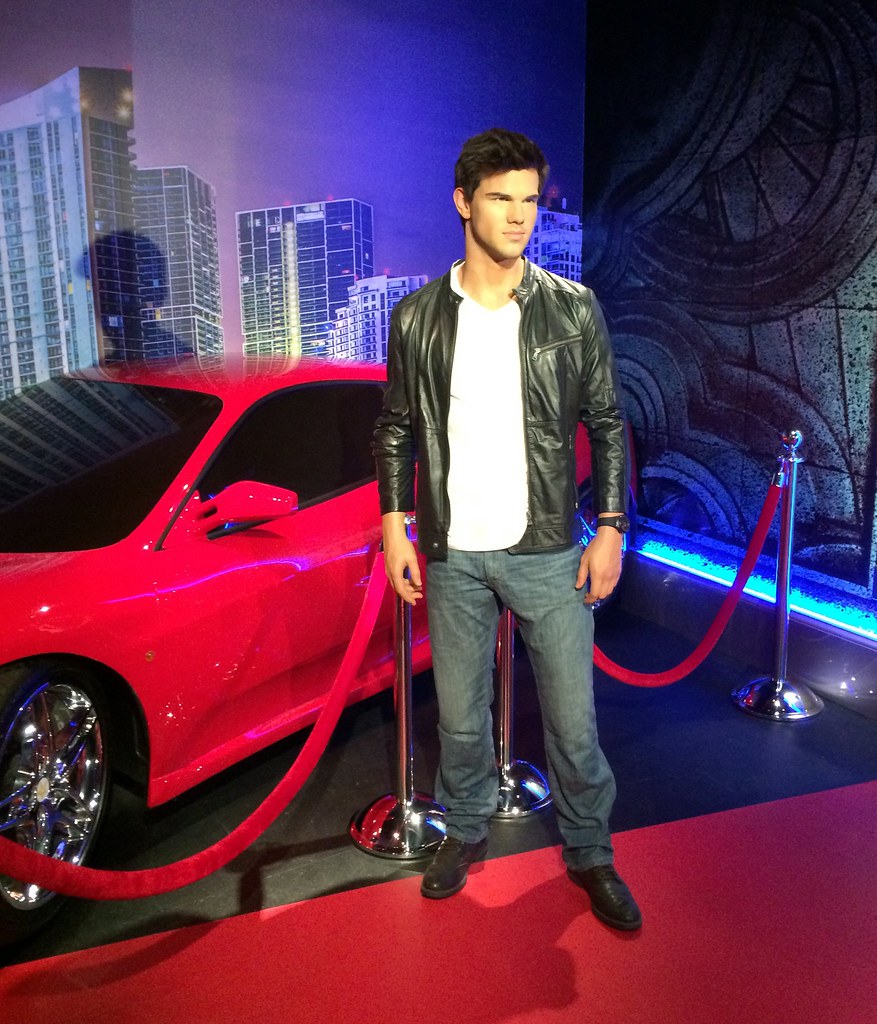
11. **The Squeeze: A New Venture in Mental Wellness**In a compelling pivot that aligns with a broader cultural conversation around well-being, Taylor Lautner, alongside his wife Tay, launched “The Squeeze,” a podcast dedicated to mental health. Debuting its first episode in February 2023, this new endeavor marks a significant foray for Lautner into new media, allowing him to engage with an audience on a deeply personal and impactful level, far removed from the scripted roles of his past. It offers a platform for genuine, unvarnished discussions, a stark contrast to the often-superficial world of celebrity.
The podcast’s premise is deeply rooted in the co-hosts’ individual journeys. Tay Lautner’s introduction to mental health began at a young age, witnessing friends and family grapple with struggles she initially couldn’t comprehend. Her experience as a nursing career during the height of the COVID-19 pandemic further exposed her to the profound impact of mental health challenges, leading to her own battles with depression, anxiety, and PTSD. This lived experience equips her with a unique perspective and an empathetic voice, making her an ideal partner in fostering an open dialogue.
Taylor Lautner’s own very public experience with body shaming during his “Twilight” years, and the subsequent mental health toll it took, makes him an equally poignant and credible voice for the podcast. He openly shared on the first episode of “The Squeeze” that true health encompasses both physical and mental well-being: “Your body can look unbelievable, you can be ripped, shredded, whatever you can lose weight, you can put on muscle, and if you’re not healthy mentally, then that’s all for nothing because that can work against you.” This candid admission underscores his personal growth and commitment to advocating for a holistic approach to health.
By combining their shared experiences and vulnerabilities, the Lautners have not merely created a podcast; they’ve cultivated a vital space for honest, accessible conversations about mental health. “The Squeeze” stands as a testament to their dedication to helping others navigate their own struggles, providing comfort and community to listeners. This initiative showcases a mature, impactful evolution in Taylor Lautner’s public life, moving beyond acting into a role of advocacy and support, truly embodying a different kind of enduring legacy.

12. **Confronting the Mirror: Body Image and Healing**One of the more poignant and deeply personal aspects of Taylor Lautner’s post-“Twilight” introspection involves his candid struggle with body image, a battle he largely fought in the public eye during his formative years. As a teenager portraying the perpetually shirtless Jacob Black, Lautner was subjected to an “unfathomable amount of body shaming,” a grueling experience he recently recounted in a February 2023 interview with Access Hollywood. The relentless scrutiny over his physique became a heavy burden, one that few young actors are prepared to shoulder with grace or resilience.
After the franchise concluded, the pressure to maintain that hyper-muscular, “cut” physique became unsustainable and, frankly, unhealthy. Lautner shared the immense embarrassment he felt as his body naturally changed, recalling the distress of “seeing all the photos and having people trash you.” More profoundly, this external criticism fostered a sense of guilt, particularly when fans expressed how inspiring his “Twilight” look had been. He confessed, “it also made me feel kind of guilty, having so many people tell me how inspiring I was to them and looking at myself in the mirror and not looking like that anymore.” This internal conflict highlights the immense psychological toll of public objectification.
Fortunately, Lautner’s journey has led him to a place of healing and self-acceptance. He emphasized on an episode of “The Squeeze” that his physical health followed his mental well-being: “I’ve gotten healthy again, but in order to get my body physically healthy, it took my mind getting healthy first.” His powerful message to prioritize mental health over superficial appearances — “Don’t find happiness in what you want your body to look like” — resonates deeply. This evolution from being defined by a character’s physique to embracing a more holistic understanding of health represents a profound personal victory and a significant chapter in his narrative, demonstrating his growth beyond the restrictive confines of a physical role.
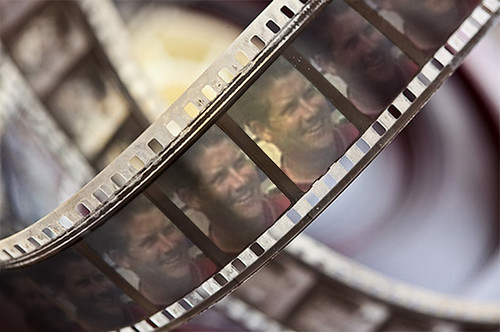
13. **Philanthropic Passions: Advocacy Beyond the Screen**Taylor Lautner’s post-Hollywood trajectory reveals a man actively engaged in meaningful causes, demonstrating a commitment to advocacy and charity work that extends far beyond the entertainment industry. In August 2022, he lent his considerable support to Hill’s Pet Nutrition and the Clear the Shelters Campaign, an initiative particularly close to his heart given his own experiences as a pet parent. This involvement signals a deliberate choice to leverage his platform for social good, focusing on issues he genuinely cares about rather than solely pursuing acting roles.
His personal connection to animal welfare is deeply felt. While his wife, Tay Lautner, had already adopted a dog named Lily, the couple expanded their family by adopting Remi from a shelter, a decision that profoundly impacted them both. Speaking to Parade, the “New Moon” star passionately advocated for shelter adoptions, stating, “Remi and Lily have changed my life so much for the better. I don’t know what I would do without them, and if anybody out there feels like they’re ready to be a pet parent, I’d say go look at your local shelters.” This personal narrative adds weight and authenticity to his advocacy efforts.
Lautner eloquently articulated the immense satisfaction derived from providing a home to an animal in need. He told Parade, “Remi is the happiest dog in the world, and you just like can sense how thankful they are. That for me is by far the most rewarding part, just feeling from her how much she loves us and how much she loves this life.” This sentiment underscores a profound shift in his sources of fulfillment. While the allure of Hollywood might fade, the deep, intrinsic reward of charity and advocacy work clearly provides Lautner with a renewed sense of purpose, illustrating a life rich with passions cultivated beyond the confines of a film set.
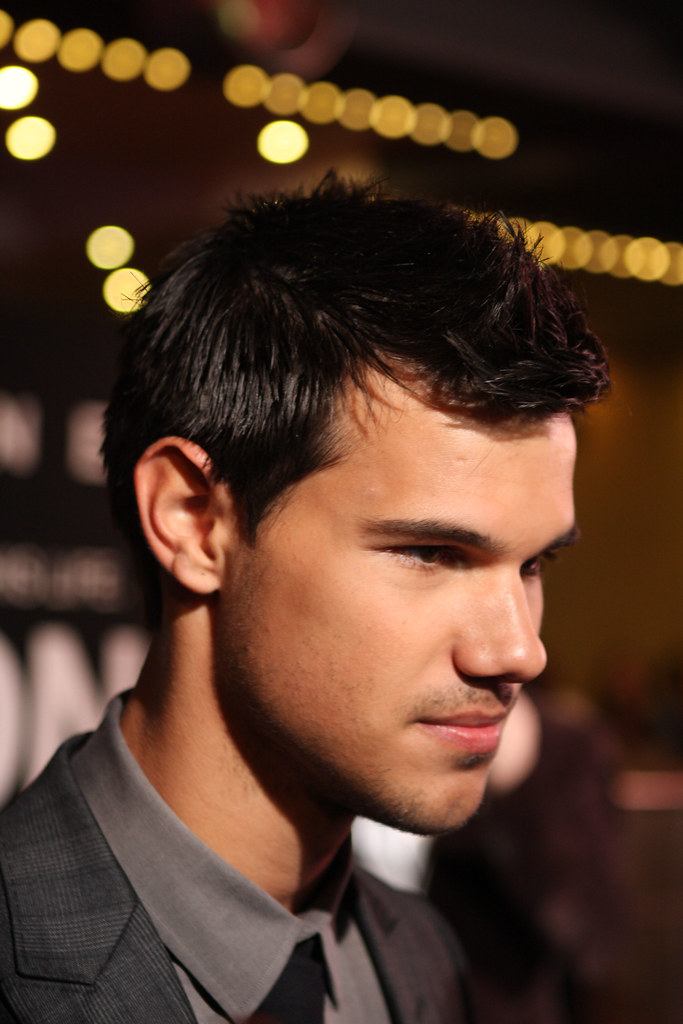
14. **Revisiting Jacob: A Nuanced Perspective on Legacy**Despite the complexities and challenges associated with his defining role, Taylor Lautner maintains a surprisingly open and nuanced perspective on a potential return to the “Twilight” franchise. The question of whether he would ever reprise his role as Jacob Black is one he’s addressed with thoughtful consideration, revealing that while the character brought him global stardom, it also came with significant personal demands. His willingness to consider shapeshifting back into the beloved werewolf suggests an evolving relationship with his enduring legacy.
Speaking with E! News in August 2022, Lautner articulated his affection for the character: “He’s a good character that is easy to love, so I would never say no to that.” He even mused about Jacob’s post-“Breaking Dawn – Part 2” fate, theorizing a “happy ever after with Renesmee because that’s where I left off… he’s a pretty loyal dude.” However, this enthusiasm is tempered by a clear and understandable reluctance to revisit the grueling physical regimen required for the role. He candidly admitted, “The body was great for the role—but the amount of the working out and discipline and food that went into it, not fond memories.” This highlights the immense pressure and the unhealthy demands placed upon him as a young actor.
His current preference reflects a healthier, more balanced approach to his physique, a direct result of his journey in understanding body image and mental wellness. Lautner clarified, “I would prefer just to be trim and healthy, you know? Definitely not a Jacob Black body.” This statement is a powerful distillation of his growth, indicating that he now prioritizes sustainable well-being over the extreme, often unnatural, physical transformations Hollywood frequently demands. His willingness to return, coupled with a firm boundary on physical expectations, showcases a mature artist in control of his narrative, keenly aware of both the character’s appeal and the personal cost of embodying it.
As the credits rolled on the “Twilight” saga, many anticipated Taylor Lautner’s seamless transition into another chapter of blockbuster stardom. Yet, as this comprehensive exploration reveals, his path diverged, not into obscurity, but into a quieter, more intentionally curated existence. From navigating the profound responsibilities of family and finding deep personal love, to championing mental wellness through his podcast and dedicating himself to meaningful advocacy, Lautner has redefined what a fulfilling life looks like beyond the Hollywood glare. His journey stands as a compelling narrative of resilience, self-discovery, and the conscious choice to build a legacy rooted in genuine connection and purpose, far richer than any transient fame.

